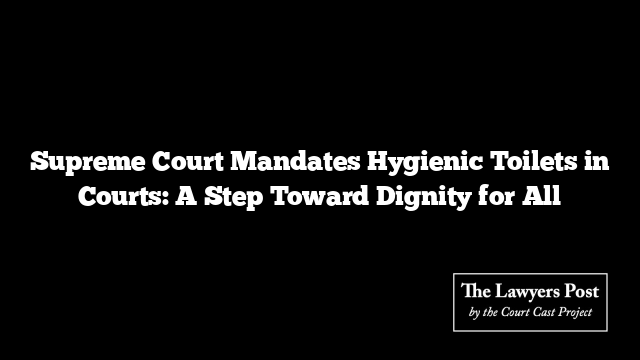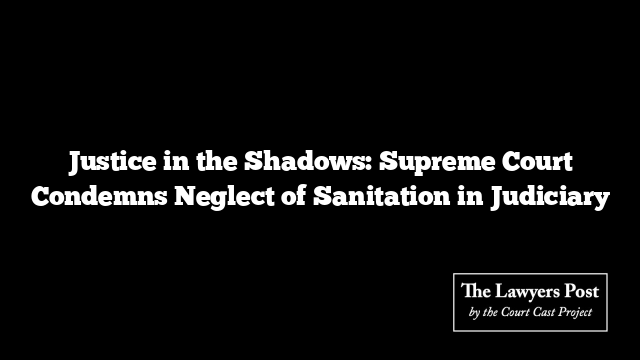In a significant move to ensure dignity and inclusivity, the Supreme Court has directed all states and union territories to construct and maintain clean, accessible toilet facilities in court premises across India. The decision, anchored in constitutional principles and human rights, seeks to address the pressing need for hygienic sanitation for all genders, including transgender individuals and persons with disabilities.
The directive was issued by a bench comprising Justice JB Pardiwala and Justice R Mahadevan while addressing a 2023 petition filed by Rajeeb Kalita. The petitioner highlighted the lack of basic toilet facilities in courts and tribunals, creating an undue burden on litigants, staff, and legal professionals.
A Constitutional Obligation
The Court underscored that the right to life extends beyond mere existence to include the right to health, hygiene, and dignity. Drawing from the Constitution and the Transgender Persons (Protection of Rights) Act, it emphasized the importance of universal access to safe and sanitary facilities. Reports like the Harmonised Guidelines & Standards for Universal Accessibility in India were cited to stress the necessity of separate, inclusive restrooms.
The judgment also drew from global practices and landmark Indian cases, such as National Legal Services Authority v. Union of India, which recognized the rights of transgender individuals, including access to separate public facilities.
Courts as Models of Inclusivity
The bench highlighted the glaring disparity in public infrastructure, pointing out the poor maintenance of toilets even in high-traffic areas like national highways. It stressed that courts, being pillars of justice, must lead by example in providing equitable facilities for judges, lawyers, litigants, and staff who often spend extended hours on the premises.
“It is the responsibility of the government and local authorities to construct and maintain hygienic toilet facilities within court premises,” the bench noted. This responsibility extends to ensuring these facilities are periodically reviewed and upgraded, with funds allocated by state governments.
Enforcing Accountability
To ensure compliance, the Supreme Court directed all High Courts and state governments to file status reports within four months. These reports will be evaluated to ensure that the construction, maintenance, and periodic review of facilities are carried out effectively.
The judgment is a step forward in addressing systemic neglect of basic amenities, reinforcing the connection between sanitation, dignity, and justice. The Court’s directive affirms that equitable access to facilities is not just an administrative obligation but a fundamental aspect of a welfare state.





